Are you looking to craft the perfect appraisal feedback letter for your employees? Providing constructive and thoughtful feedback is essential for growth and development in any workplace. This template will help you communicate your thoughts effectively while encouraging and motivating your team members. Let's dive deeper into how to structure your appraisal feedback for maximum impact!

Clear evaluation criteria.
Employee appraisal feedback requires clear evaluation criteria, which encompasses specific performance metrics and measurable goals. Set objectives may include productivity levels, teamwork dynamics, and individual contribution to departmental projects, such as completing a project ahead of deadline (within a two-week timeframe) or enhancing customer satisfaction ratings (improving scores by at least 10% within six months). Recognition of skills like problem-solving ability, communication effectiveness, and adaptability to new software systems provides comprehensive insight into employee strengths and areas for improvement. Incorporating quantitative data, such as sales figures or project completion rates, can enhance the objectivity of the evaluation process. Regular feedback sessions, such as quarterly reviews, further support ongoing development by providing opportunities for discussion, goal reassessment, and professional growth planning.
Constructive and balanced feedback.
During the recent evaluation period, the employee demonstrated strong dedication to their role in the marketing department at Acme Corp. Performance metrics showed a remarkable 25% increase in social media engagement and a 15% uptick in lead generation, showcasing the effectiveness of their strategies. However, there are areas requiring improvement. Attendance records indicate an average of three tardies per month, affecting team collaboration and project timelines. Additionally, while creativity in campaign development is commendable, consistently aligning proposals with company objectives is essential for future success. Overall, the employee's contributions significantly benefit the team, and with focused efforts on punctuality and strategic alignment, their impact can increase even further.
Specific achievements and examples.
In the past year, the employee excelled in project management, successfully leading a team of five on the marketing campaign for the new product launch at Company X, resulting in a 25% increase in sales within the first quarter. The utilization of innovative digital strategies, particularly social media advertisements on platforms like Instagram, attracted over 10,000 new customers within the first month. Additionally, the employee demonstrated exceptional problem-solving skills during a critical client meeting in June, where their quick thinking resolved a potential conflict with a major client, preserving a contract valued at $500,000. The consistent collaboration with cross-functional teams also contributed to streamlining internal processes, reducing project turnaround time by 15%. Furthermore, the completion of a professional certification in project management in September added to their qualifications and enhanced the team's overall performance.
Future goals and development plans.
Future goals in employee appraisals focus on skill enhancement and career progression. Short-term objectives may include mastering specific software related to the position, such as Salesforce or Microsoft Excel, with measurable targets like completing at least two advanced-level courses within six months. Long-term aspirations might involve leadership roles, such as team lead or project manager, requiring soft skills development in areas like communication and conflict resolution, often rated through 360-degree feedback assessments. Development plans can encompass mentorship opportunities, pairing employees with seasoned professionals for guidance and industry insights. Regular check-ins, suggested quarterly reviews, ensure alignment with performance metrics and organizational goals, fostering a nurturing environment for growth within the company.
Professional and empathetic tone.
Employee performance evaluations play a crucial role in fostering professional growth and enhancing workplace morale. Constructive feedback should highlight individual achievements, reflect on both strengths and areas for improvement, and provide actionable suggestions for development. It is essential to recognize employees' contributions to team goals and the overall organizational objectives. Encouragement and support should be balanced with honesty, ensuring that employees feel valued and motivated. Transparency regarding performance metrics and expectations aids clarity. Following up with a plan for continuous progress can help facilitate individual career trajectories while nurturing a positive work environment.

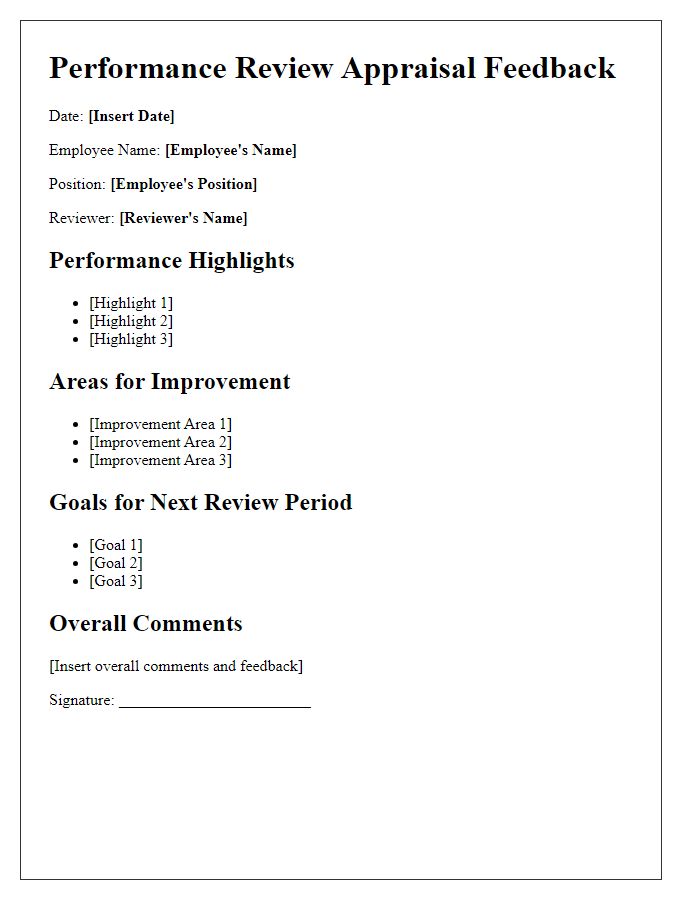
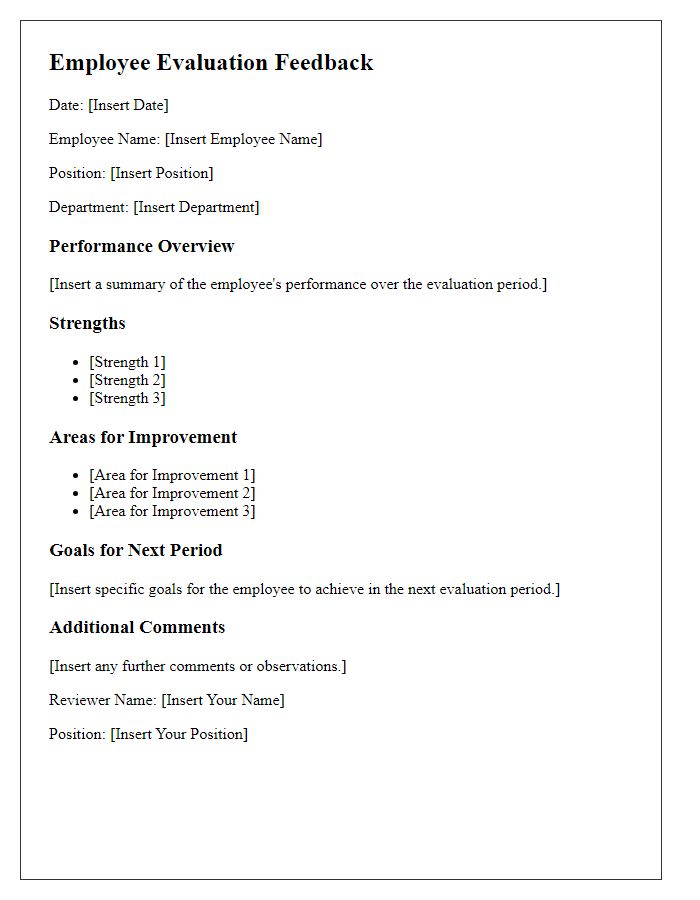
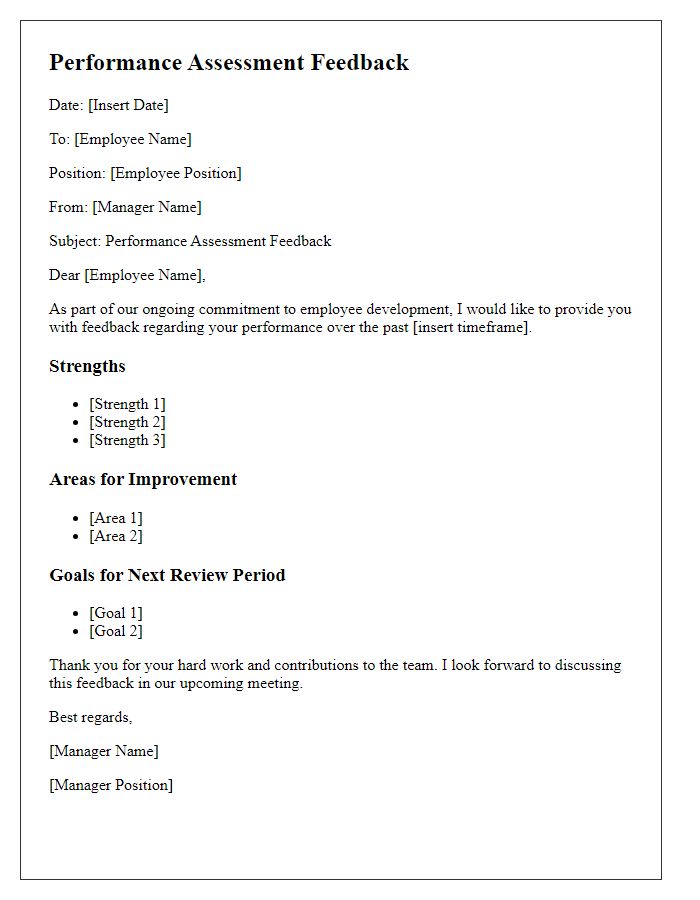
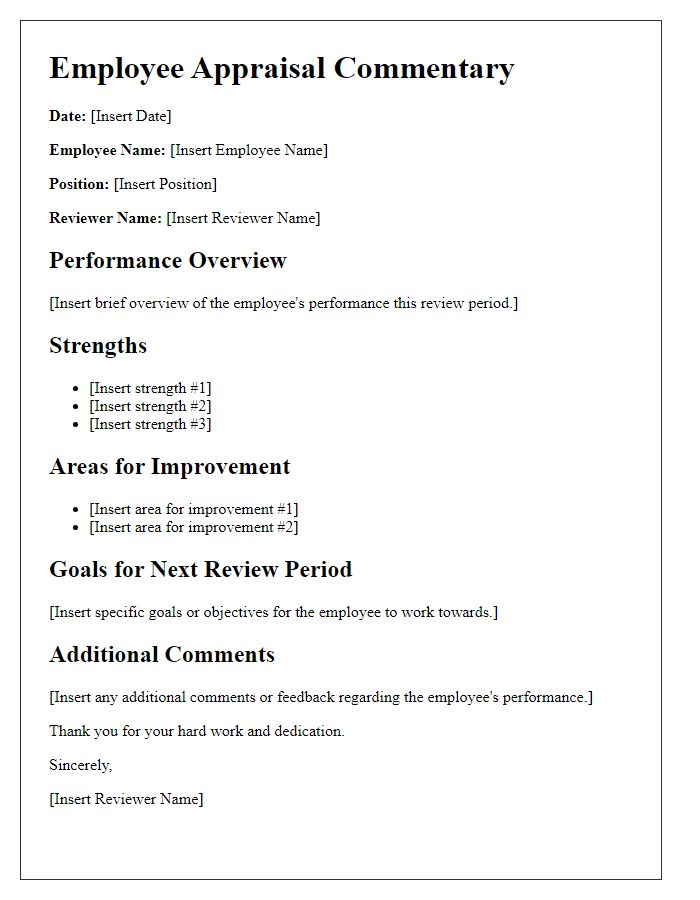
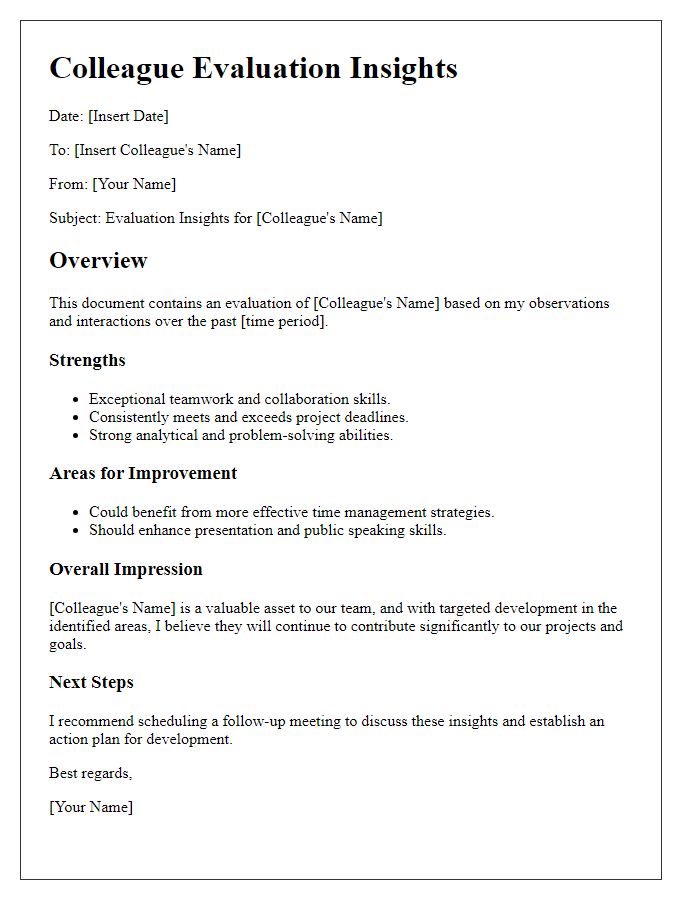
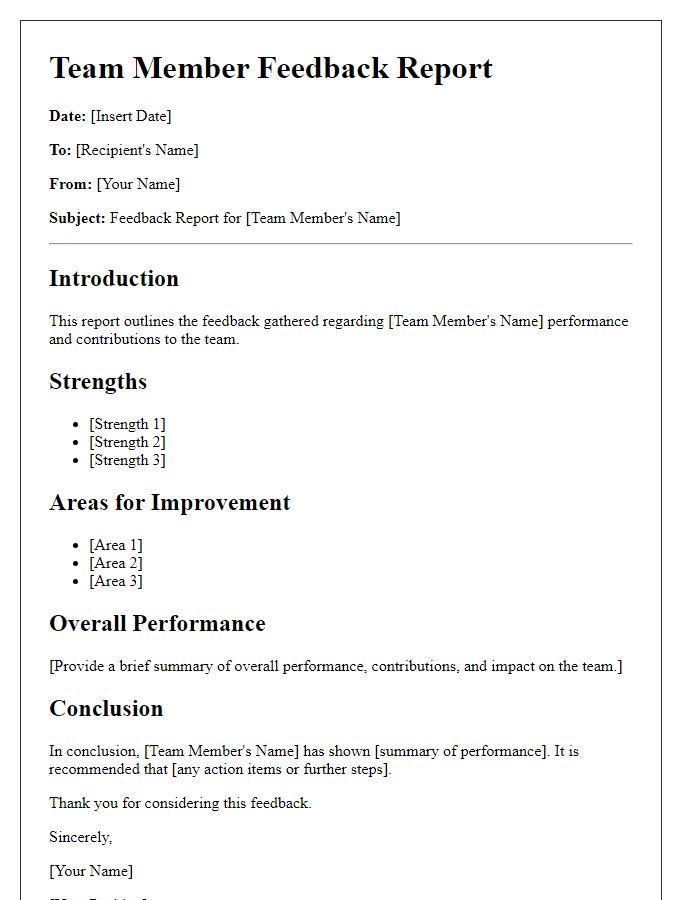
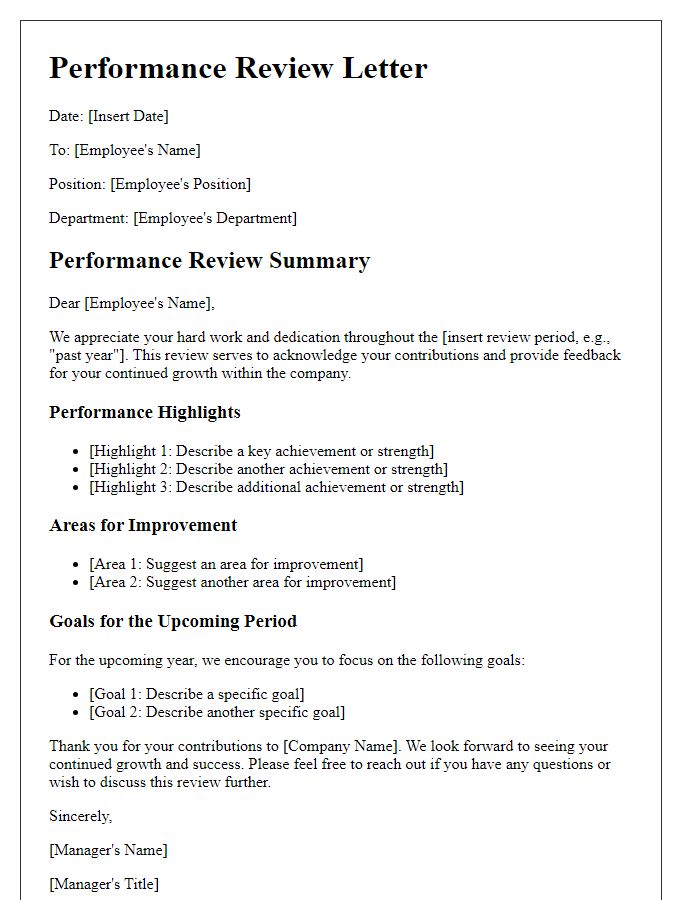
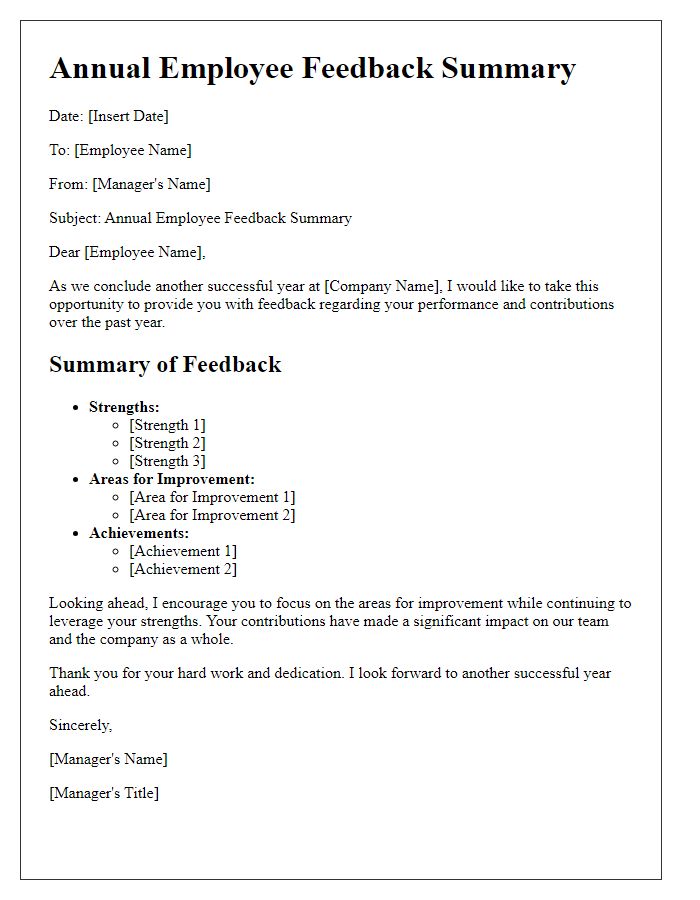
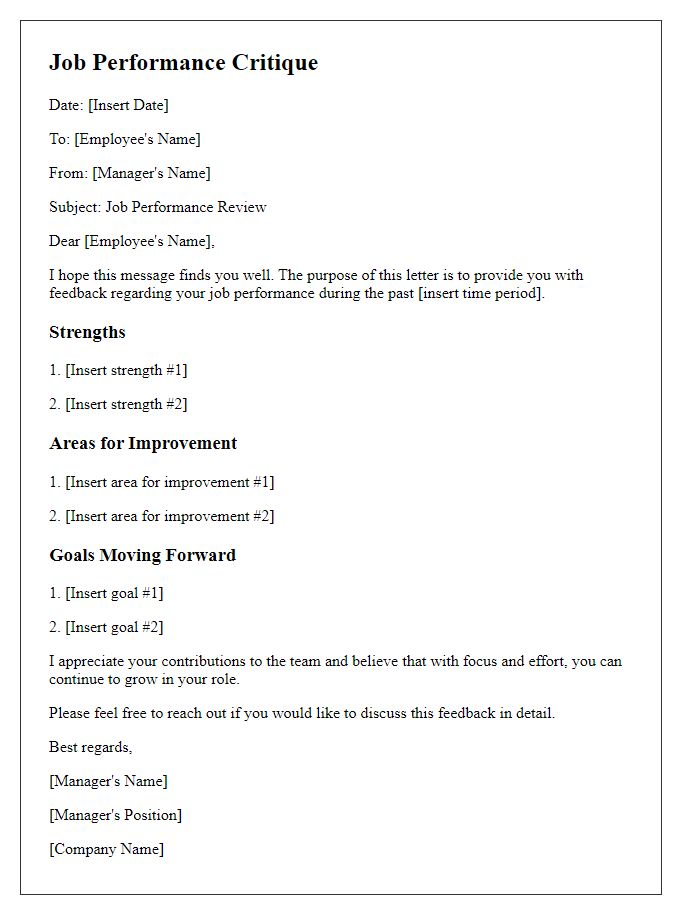
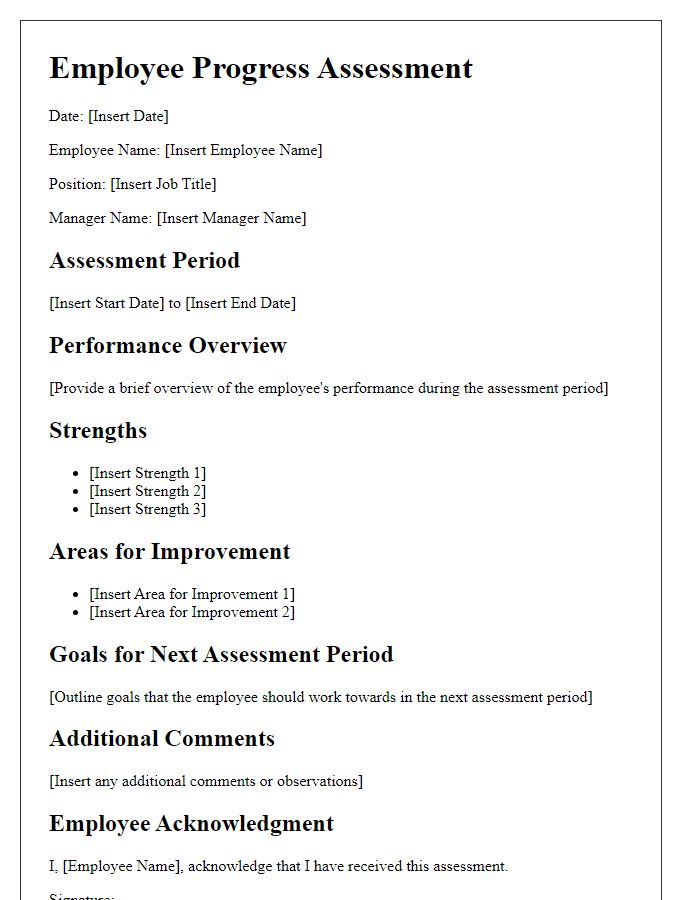


Comments